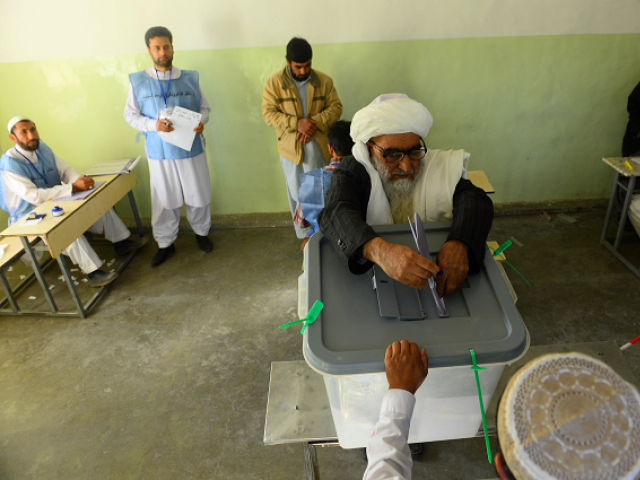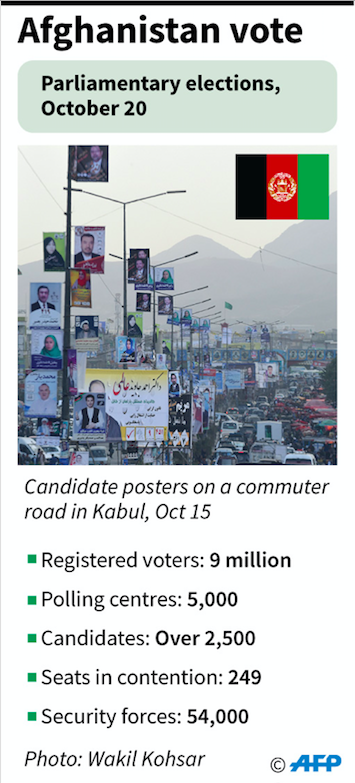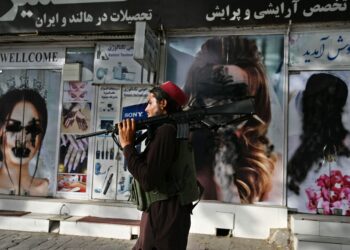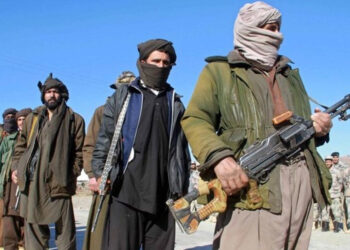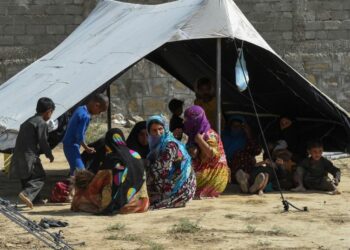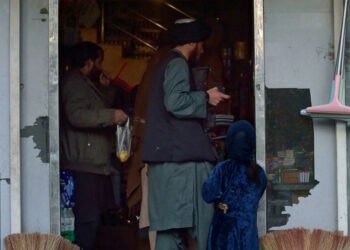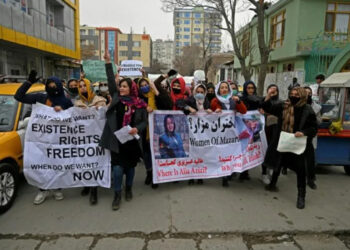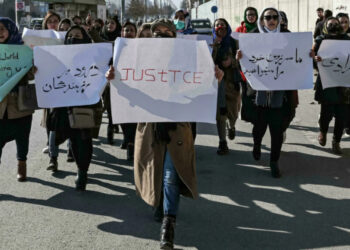Parliamentary elections are taking place in Afghanistan after years of delay. Over 2,500 candidates are competing for 249 seats with unprecedented youth participation. A huge part of the population, “63.7 percent,” is believed to be younger than 25 years old.
With this number, Afghanistan has one of the youngest populations in the world. The generation that was born in the mid-1990s was below the age of 10 when the U.S.-led international intervention opened educational opportunities and scholarships in 2001.
Despite the low literacy rate of 62 percent among young men and 32 percent among young women, the youths of Afghanistan are showcasing their readiness to take the future into their own hands by running for parliamentary seats at large numbers. Besides that, they constitute the majority of voters.
This election is the first light in a long dark tunnel for them. The youths now have the chance to dominate and form a serious parliament.
Past Electoral Ironies Marred by Tribalism
“Elections” are held in Afghanistan since the “overthrow” of the Taliban’s de facto regime in 2001. The Taliban were ousted for their support and harboring of al-Qaeda leader Osama bin Laden and his followers in the wake of the terrorist attacks of 9/11.
Although the U.S.-led international campaign against the Taliban and their al-Qaeda patron was a military mission at first, it expanded to incorporate “state-building” and “democratization” after the “UN-sponsored” Bonn Conference on Afghanistan in 2001.
Since then, Afghanistan has gone through three presidential (2004, 2009 and 2014) and two parliamentary elections (2005 and 2009) under the tutelage of the U.S.-led international community. All of these elections were blighted with widespread fraud.
The 2014 presidential election had to be invalidated and replaced with a political deal because of the “systemic fraud.” The vote became known as “stuffed-sheep” or sheep election, a metaphorical reference to an audio recording, in which the Independent Election Commission (IEC) Operational Chief instructed his employees to take the “sheep to the mountains and stuff them” in favor of Ashraf Ghani. Sheep was a code for ballot boxes.
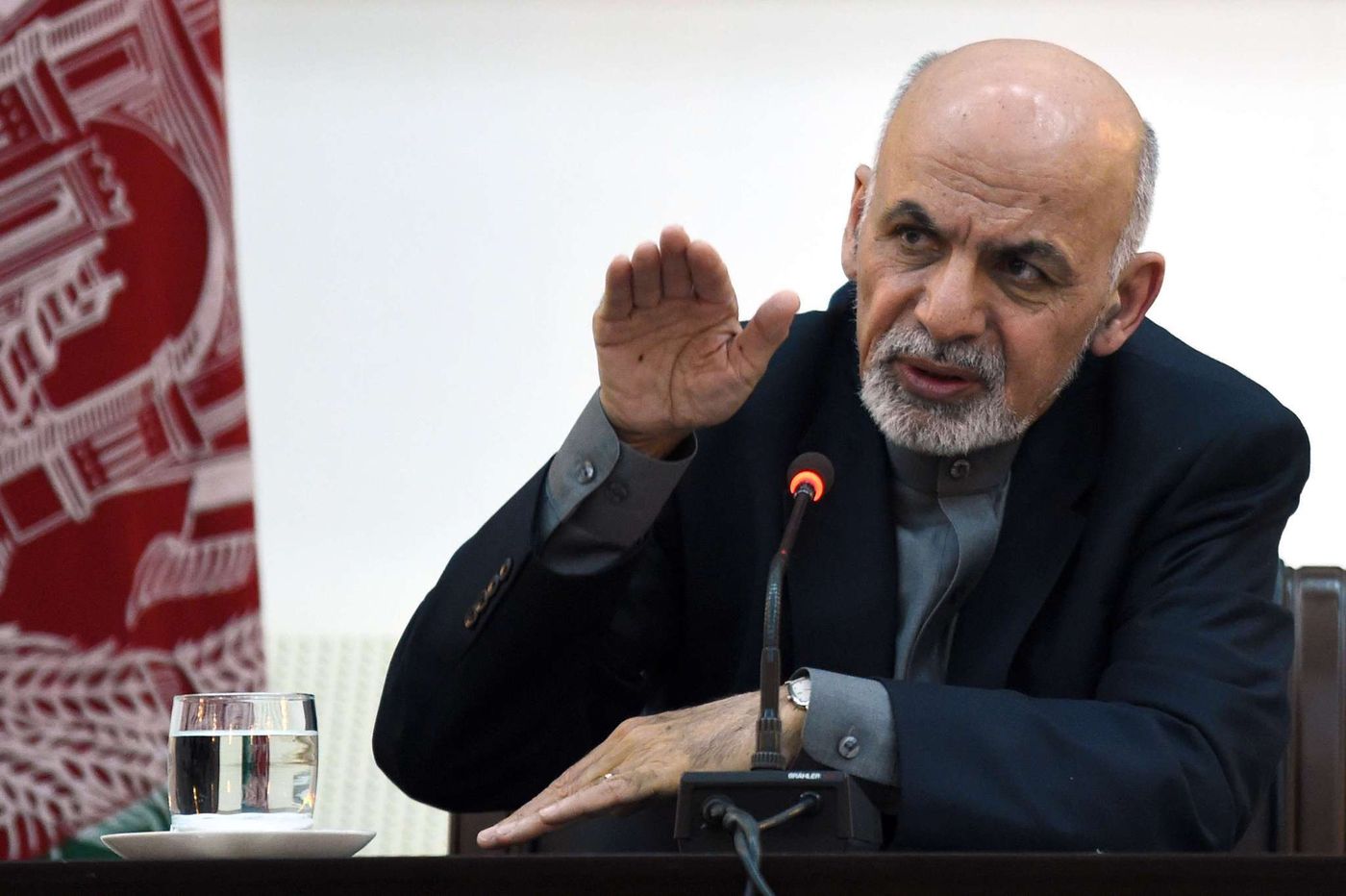
The suspect behind this systemic fraud was Zia ul-Haq Amarkhail whom former President Hamid Karzai had installed as the IEC Operational Chief by describing him as his “nephew,” an expression of his favor rather than of actual kinship. Nevertheless, they are both Pashtuns.
Amairkhail was forced to resign and was recently barred from running for this parliamentary election. However, Ghani hired him as a top presidential advisor in “public and political affairs” on September 27, months away from the presidential election.
Tribalism has prevailed over modernity in Afghanistan. Even in the eon of global cultural interconnectedness, perhaps post-modernity, the “Afghan” ruling elites, although western educated, have remained tribal. They would undermine any democratic process or modern political system to stay in power.
Waves of modernization have failed to transform Afghanistan into a modern state that can “safeguard civility” of its society and fabricate an “associational realm” for its diverse citizens beyond ethnicity, tribe, clan, and kinship. These trickle-down subdivisions serve as fault lines in the “Afghan” tribal state and society.
Consequently, uncivil groups like the Taliban, who draw supporters and sympathizers despite their barbaric acts of terrorism, still exist in Afghanistan.
On the other hand, the educated youths (young women and men) are agonized and demanding modernity, as demonstrated in their colorful participation in this election.
Ongoing Electoral Barriers for Youths
The Taliban do not believe in elections and have vowed to target voters, as they have done in the past by cutting several voters’ fingers, blowing up polling stations, targeting election campaigns, and kidnapping IEC employees and voters.
Besides the Taliban, the “Afghan” tribal government is a major challenge. The Presidential Palace has not only hand-picked its own people like the IEC commissioners and chiefs but also demonstrated an unwillingness to facilitate free and fair elections.
After months of pressure, the oppositions succeeded in forcing the government to use biometric systems in this parliamentary election. It was expected that the system would be an online one with instant vote casting functionality.
However, the technology that is being used has various flaws. It accepts entry of the same person multiple times and cannot distinguish between a human face and a document. Also, it does not collect final results automatically.
The IEC employees will enter the results manually, which has been problematic in the past and will be so again. Counting millions of votes manually is no easy task. There is also the problem of ghost voters or “stuffed sheep” that this biometric system won’t be able to catch.
Observers have already voiced concerns during the first hours of vote casting. They reported that the “biometric” handsets were not functional in many polling stations. This has slowed down the process and turned many voters away due to the long waiting queues.
In some neighborhoods, polling stations have not opened at all. The local outlet and TV station TOLOnews “received over 4,000 complaints in about an hour and a half – mostly about polling stations that had not opened.”
Additionally, days prior to this election, reports exposed that a suspicious group Democracy for Afghanistan (D4A) is accused of being behind the candidacy of 150 candidates with excessive funds. It was reported that Ghani’s recently resigned chief of staff Daud Noorzai and Ghani’s rich cousin Ajmal Ghani have been behind this group.
What is at Stake in Parliamentary Election?
Since 2005, Afghanistan has had a bicameral parliament that has legislative and oversight leverages to keep the executive branch, including the Presidential Palace checked.
Instead, it has turned out to be part of what Professor Alex de Waal calls the Political Marketplace: a “system of governance, characterized by pervasive monetized patronage, in the form of exchange of political loyalty or cooperation for payment.”
Thus far, with some exceptions, MPs have played ethnic and tribal cards to use the parliament as a platform to sell political loyalty in exchange for lucrative contracts and rent-generating governmental positions for their family members or cronies.
Therefore, the Presidential Palace has been able to keep the parliament as a political loyalty bank at its disposal. If the incoming MPs will be people-centered, it would pose a major challenge to the Presidential Palace that has been accused of conspiring “national interests” for ethnic favoritism and grant of lucrative contracts to family and friends.
Nevertheless, whatever the results will be at the end of today’s election in Afghanistan, the future seems to be bright. The youths are awakened. Sooner or later, they will take the lead and modernize their state and society into one where ethnic diversity will be valued and transformed into constructive building blocks of an associational realm, as has been the case in Switzerland, not vice versa.
The parliament is surely a platform with needed socio-political leverages that vibrant nontribal MPs could use to lay the foundations for an associational realm by facilitating the creation of extra-parliamentary volunteer associations.
Such representatives-constituencies partnership could collectively take on various national issues beyond ethnicity, tribe, clan, and kinship in some form of a larger and open civil society. Subsequently, Afghanistan will detour towards modernity from dead-end tribalism youths in its driving seat.
Disclaimer: The views and opinions expressed here are those of the author and do not necessarily reflect the editorial position of The Globe Post.

